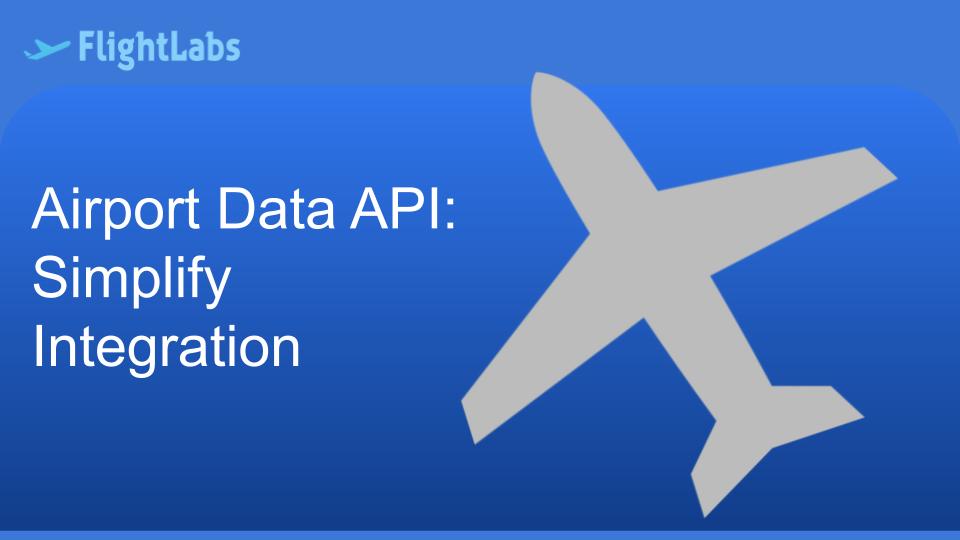Airport Data API: Simplify Integration

Integrating complex data into applications can be a daunting task, especially in the fast-paced aviation industry. However, with the advent of Airport Data APIs, developers now have powerful tools to simplify integration and access valuable aviation information seamlessly. In this blog post, we'll explore how Airport Data APIs simplify integration and empower developers to create innovative solutions for the aviation sector.
Unified Data Source:
One of the key benefits of using an Airport Data API is that it provides a unified data source for developers. Instead of manually sourcing data from multiple sources, developers can access a comprehensive set of aviation data, including airport facilities, flight schedules, weather conditions, ground transportation options, and more, through a single API. This unified approach streamlines the integration process and reduces development time and effort.
Standardized Data Format:
Airport Data APIs typically provide data in standardized formats such as JSON or XML, making it easier for developers to parse and integrate into their applications. This standardized data format ensures consistency and compatibility across different systems and platforms, enabling seamless data exchange and interoperability. Developers can focus on building functionalities and user experiences without worrying about data format discrepancies.

Flexible Integration Options With FlightLabs
FlightLabs offes flexible integration options to suit various development environments and programming languages. Developers can choose from RESTful APIs, SOAP APIs, SDKs, client libraries, and other integration tools based on their preferences and technical requirements. This flexibility allows developers to integrate data seamlessly into web applications, mobile apps, backend systems, and other platforms with ease.
Developer-Friendly Documentation:
FlightLabs often comes with developer-friendly documentation that provides detailed information about endpoints, parameters, authentication methods, response formats, and usage guidelines. This documentation helps developers understand how to interact with the API, integrate data into their applications effectively, troubleshoot issues, and optimize performance. Clear and concise documentation accelerates the integration process and reduces learning curves.
Real-Time Data Updates:
Another advantage of using FlightLabs is access to real-time data updates. Developers can receive instant updates about flight schedules, status changes, weather conditions, and other critical information, ensuring that their applications always display accurate and up-to-date data to users. Real-time data updates enhance the reliability and relevance of applications, providing users with timely information.
Scalability and Performance:
FlightLabs is designed to be scalable and performant, capable of handling large volumes of data requests and user interactions. Whether an application serves a few users or millions of users worldwide, Airport Data APIs can scale to meet demand without compromising performance. This scalability ensures that applications remain responsive, reliable, and efficient under varying workload conditions.
Security and Compliance:
FlightLabs prioritizes security and compliance, implementing robust authentication mechanisms, data encryption, access controls, and compliance with industry standards and regulations. Developers can integrate data into their applications securely, protect sensitive information, and ensure data privacy for users. Compliance with security best practices and regulatory requirements instills trust among users and stakeholders.

Support and Maintenance:
FlightLabs offers dedicated support channels, developer forums, and resources to assist developers during integration, troubleshooting, and maintenance phases. Developers can seek help, ask questions, and collaborate with API providers and the developer community to address issues, implement best practices, and optimize their applications. Ongoing support and maintenance ensure that applications function smoothly and deliver value to users.
Conclusion:
In conclusion, FlightLabs simplifies integration by providing a unified data source, standardized data format, developer-friendly documentation, flexible integration options, real-time data updates, scalability, performance, security, compliance, support, and maintenance. Developers can leverage these APIs to seamlessly integrate valuable aviation data into their applications, create innovative solutions, and enhance the overall user experience in the aviation industry.